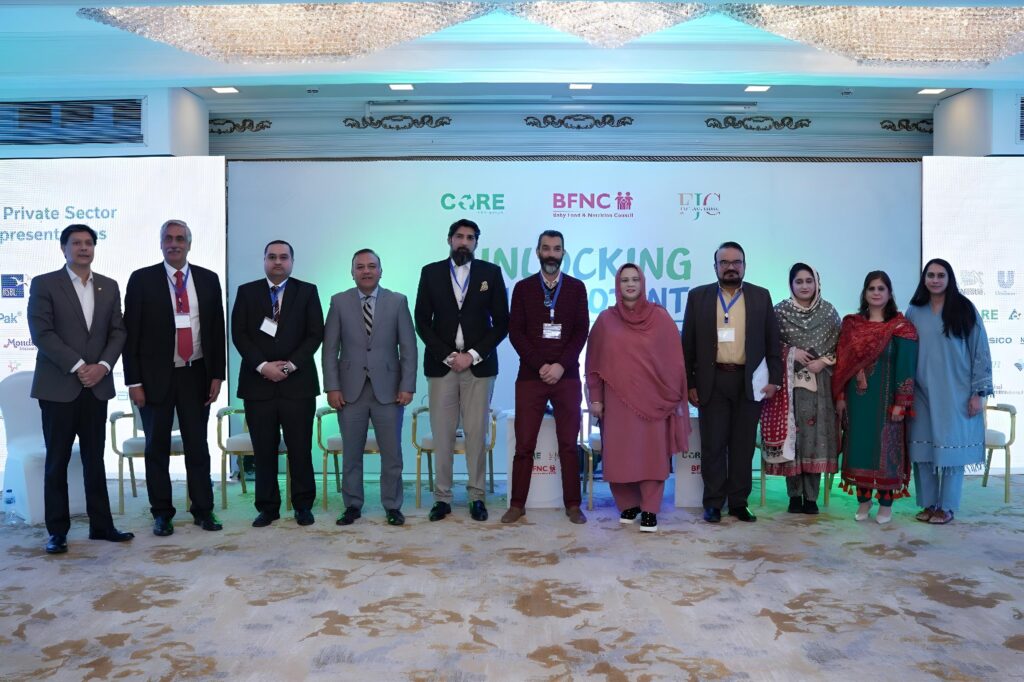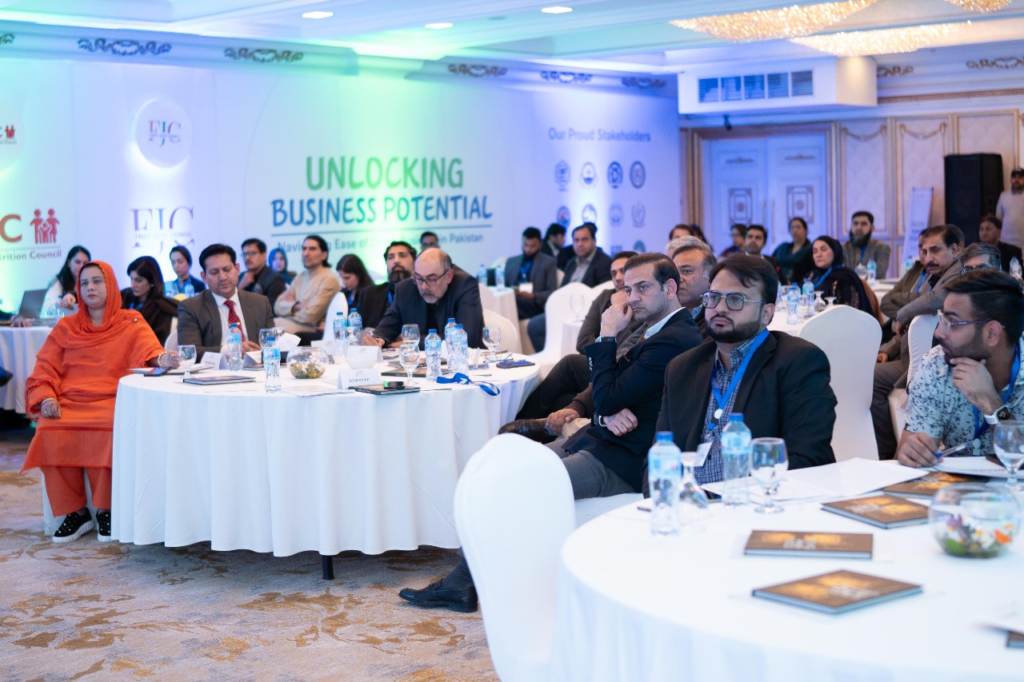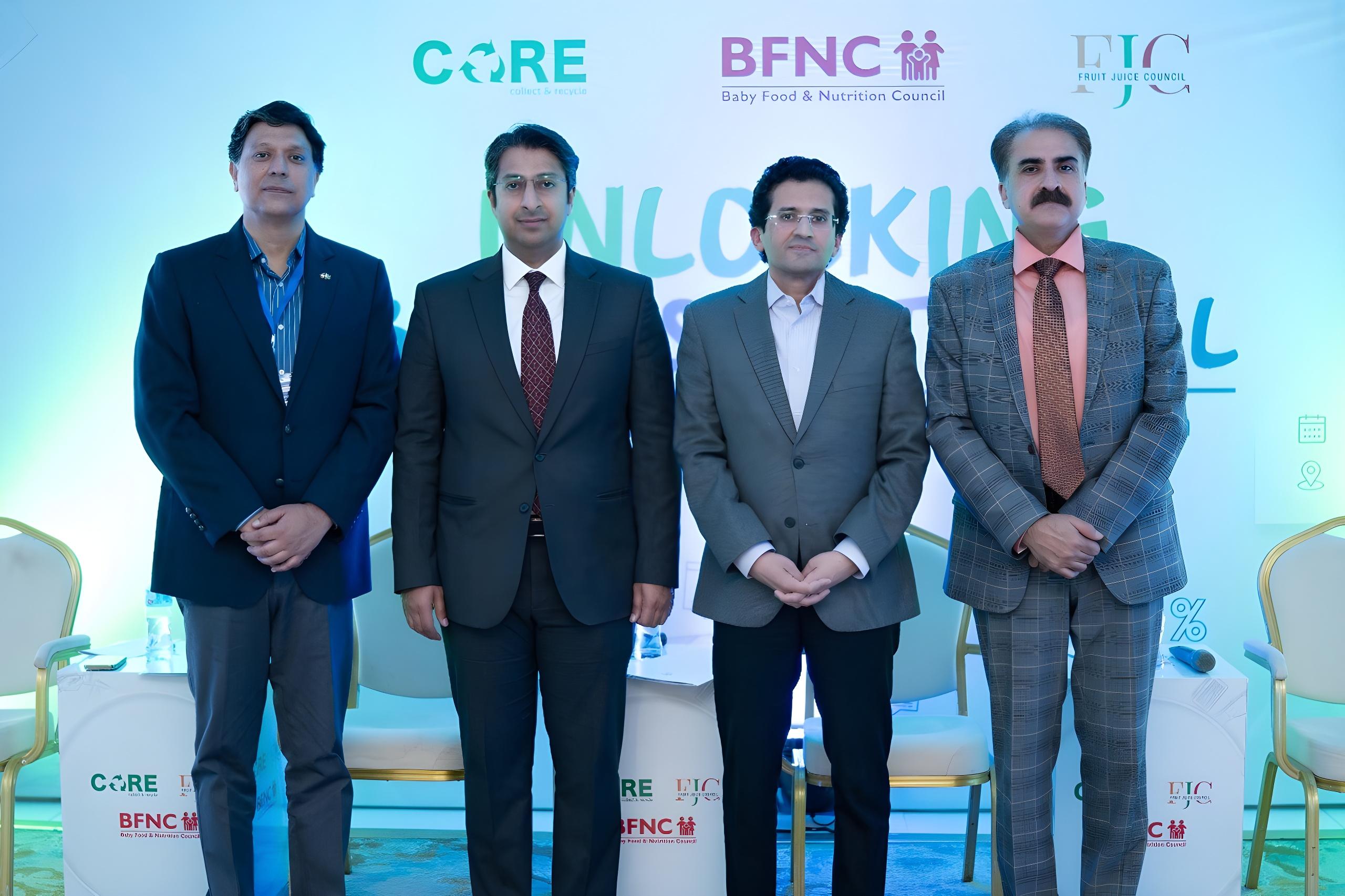Islamabad, 19 February 2025 – At a public-private dialogue, government and private stakeholders reached a consensus on the essential need to harmonize legislation in key areas such as provincial taxes and environmental regulations.
This agreement served as the centerpiece of a national multi-stakeholder meeting organized by CoRe Alliance, Baby Food and Nutrition Council, and Fruit Juice Council.

The participants noted that harmonization is critical for unlocking business potential in Pakistan, promoting economic growth, and ensuring ease of living for the general populace. Held in Bhurban, the convening brought together political leaders, federal and provincial agencies, representatives from the private sector, and media to discuss regulatory efficiency and business facilitation.

The convening was inaugurated by Ali Pervaiz Malik, the State Minister for Finance and Revenue. In addition, the session featured special addresses by Rana Ihsaan Afzal, the Coordinator to the Prime Minister, and Jameel Qureshi, Federal Secretary SIFC.
Discussions focused on three main areas:
creating a Regulatory Framework for Ease of Doing Business through Harmonization, tackling the Growing Challenges of Parallel Trade and Counterfeit Products, and addressing Packaging & Environmental Regulations.
Ali Pervaiz Malik stressed the necessity for policy realignment to boost business growth, citing reforms such as the Regulatory Guillotine, National Tax Council Activation, and the Board of Investment (BOI) Facilitation Desk.
Rana Ihsaan Afzal elaborated on Uraan Pakistan and advocated focusing on three ‘E’s—export-driven growth, enhancing the IT sector, and ensuring sustainable energy policies.

Jameel Qureshi presented eight imperatives for sustainable economic growth, which included transitioning toward export-led growth, adopting a long-term economic roadmap, digitizing economic processes, and incentivizing domestic production. Additionally, Sheikh Waqar Ahmad from the industry alliances emphasized the importance of public-private consultation to build consensus and highlighted the need for harmonized regulations to drive the economic agenda.
Participants recognized that the national harmonization of food standards represents a gold standard, urging a similar approach in other regulatory areas. They observed that differing tax structures across provinces hinder ease of doing business, with an FBR representative noting tax reform initiatives in collaboration with the World Bank. Counterfeit and spurious products, as well as gray trade products violating S.R.O 237, were identified as key reasons for legal businesses losing market share.
The potential for exporting packaged food was also highlighted as a strategy to capture growing markets for Halal products. Moreover, the meeting underscored that successful Extended Producer Responsibility (EPR) schemes require strong collaboration and shared responsibilities between public and private stakeholders, including consumers, with recycling recognized as the backbone of a circular economy.
The closing address was delivered by Ms. Farzana Altaf, Director General of the Pakistan Environmental Protection Agency, who stressed the importance of enacting unified environmental legislation to support a circular economy.
Government representation included the Special Investment Facilitation Council (SIFC), BOI, Pakistan Standards & Quality Control Authority (PSQCA), Provincial Food Authorities, FBR, Ministries of Commerce and Industries & Production, the Senate of Pakistan, the National Tariff Commission, and provincial Environmental Protection Agencies (EPAs).

